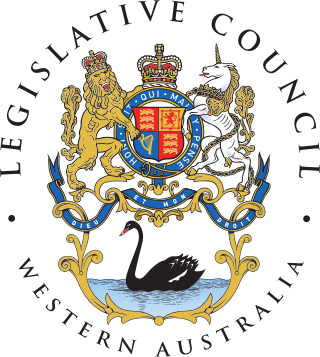
The Politics of Yemen are in an uncertain state due to the Houthi takeover in Yemen. An armed group known as the Houthis or Ansar Allah seized control of the Northern Yemeni government and announced it would dissolve parliament, as well as install a "presidential council", "transitional national council", and "supreme revolutionary council" to govern the country for an interim period. However, the deposed president, Abdrabbuh Mansur Hadi, has declared he is still in office and is working to establish a rival government in Aden.

Suffrage, political franchise, or simply franchise is the right to vote in public, political elections and referendums. In some languages, and occasionally in English, the right to vote is called active suffrage, as distinct from passive suffrage, which is the right to stand for election. The combination of active and passive suffrage is sometimes called full suffrage.
Women's suffrage is the right of women to vote in elections. At the beginning of the 18th century, some people sought to change voting laws to allow women to vote. Liberal political parties would go on to grant women the right to vote, increasing the number of those parties' potential constituencies. National and international organizations formed to coordinate efforts towards women voting, especially the International Woman Suffrage Alliance.
Electoral systems of the Australian states and territories are broadly similar to the electoral system used in federal elections in Australia.

Since becoming independent of the United Kingdom in 1970, Fiji has had four constitutions, and the voting system has changed accordingly.

The New South Wales Legislative Council, often referred to as the upper house, is one of the two chambers of the parliament of the Australian state of New South Wales. The other is the Legislative Assembly. Both sit at Parliament House in the state capital, Sydney. It is normal for legislation to be first deliberated on and passed by the Legislative Assembly before being considered by the Legislative Council, which acts in the main as a house of review.

The Legislative Council, or upper house, is one of the two chambers of the Parliament of South Australia. Its central purpose is to act as a house of review for legislation passed through the lower house, the House of Assembly. It sits in Parliament House in the state capital, Adelaide.

Elections in Angola take place within the framework of a multi-party democracy. The National Assembly is directly elected by voters, while the leader of the party or coalition with the most seats in the National Assembly automatically becomes President.

The Parliament of South Australia is the bicameral legislature of the Australian state of South Australia. It consists of the 47-seat House of Assembly and the 22-seat Legislative Council. General elections are held every 4 years, with all of the lower house and half of the upper house filled at each election. It follows a Westminster system of parliamentary government with the executive branch required to both sit in parliament and hold the confidence of the House of Assembly. The parliament is based at Parliament House on North Terrace in the state capital of Adelaide.

Elections in Yemen take place within the framework of a presidential system, with both the President and House of Representatives elected by the public. Due to political instability, elections have not been held regularly since the early 2000s.

The Western Australian Legislative Council is the upper house of the Parliament of Western Australia, a state of Australia. It is regarded as a house of review for legislation passed by the Legislative Assembly, the lower house. The two Houses of Parliament sit in Parliament House in the state capital, Perth.

Women's suffrage – the right of women to vote – has been achieved at various times in countries throughout the world. In many nations, women's suffrage was granted before universal suffrage, in which cases women and men from certain socioeconomic classes or races were still unable to vote. Some countries granted suffrage to both sexes at the same time. This timeline lists years when women's suffrage was enacted. Some countries are listed more than once, as the right was extended to more women according to age, land ownership, etc. In many cases, the first voting took place in a subsequent year.

The State Council of Ceylon was the unicameral legislature for Ceylon, established in 1931 by the Donoughmore Constitution. The State Council gave universal adult franchise to the people of the colony for the first time. It replaced the Legislative Council of Ceylon, the colony's original legislative body.

General elections were held in Singapore on 30 May 1959. They were held under the new constitution and were the first in which all 51 seats in the Legislative Assembly were filled by election. This was the first election victory for the People's Action Party (PAP), as they won a landslide victory with 43 seats. The party has remained in power ever since.

The principles of the current Constitution of South Australia, also known as the South Australian Constitution, which includes the rules and procedures for the government of the State of South Australia, are set out in the Constitution Act 1934. Its long title is "An Act to provide for the Constitution of the State; and for other purposes".

Women's suffrage in Australia was one of the early achievements of Australian democracy. Following the progressive establishment of male suffrage in the Australian colonies from the 1840s to the 1890s, an organised push for women's enfranchisement gathered momentum from the 1880s, and began to be legislated from the 1890s, decades in advance of Europe and North America. South Australian women achieved the right to vote in 1894, and to stand for office in 1895 following the world first Constitutional Amendment Act 1894. This preceded even male suffrage in Tasmania. Western Australia granted women the right to vote from 1899, although with some racial restrictions. In 1902, the newly established Australian Parliament passed the Commonwealth Franchise Act 1902, which set a uniform law enabling women to vote at federal elections and to stand for the federal parliament. By 1908, the remaining Australian states had legislated for women's suffrage for state elections. Grace Benny was elected as the first councillor in 1919, Edith Cowan the first state Parliamentarian in 1921, Dorothy Tangney the first Senator and Enid Lyons the first Member of the House of Representatives in 1943.
Suffrage in Australia is the voting rights in the Commonwealth of Australia, its six component states and territories, and local governments. The colonies of Australia began to grant universal male suffrage from 1856, with women's suffrage following between the 1890s and 1900s. Some jurisdictions introduced racial restrictions on voting from 1885. Such restrictions had been eradicated by the 1960s. Today, the right to vote at all levels of government is held by citizens of Australia over the age of 18 years.

General elections were held in Kenya Colony on 2 April 1924. The elections were the first under a new Constitution which saw suffrage extended to Indians and Arabs, who were allotted five and one elected seat in the Legislative Council respectively, alongside the eleven elected seats for the white population, although appointed members were still the majority. Whilst all adult Indian residents were given the right to vote, in the Arab community only men literate in Arabic or Swahili and resident in the country for two years were enfranchised, as the community had requested that women not be given the right to vote. One member was appointed to represent the majority black population.

Elections to the Legislative Council were held in the Colony of Aden on 4 January 1959.

General elections were held in the Gold Coast in June 1946. Constitutional amendments on 29 March 1946 enabled the colony to be the first in Africa to have a majority of black members in its legislature; of the Legislative Council's 32 members, 21 were black, including all 18 elected members. The first meeting of the Legislative Council was on 23 July 1946.













